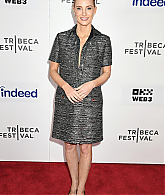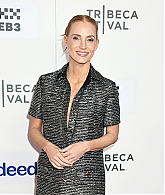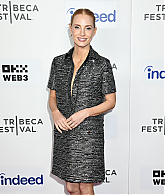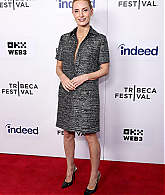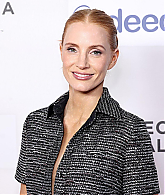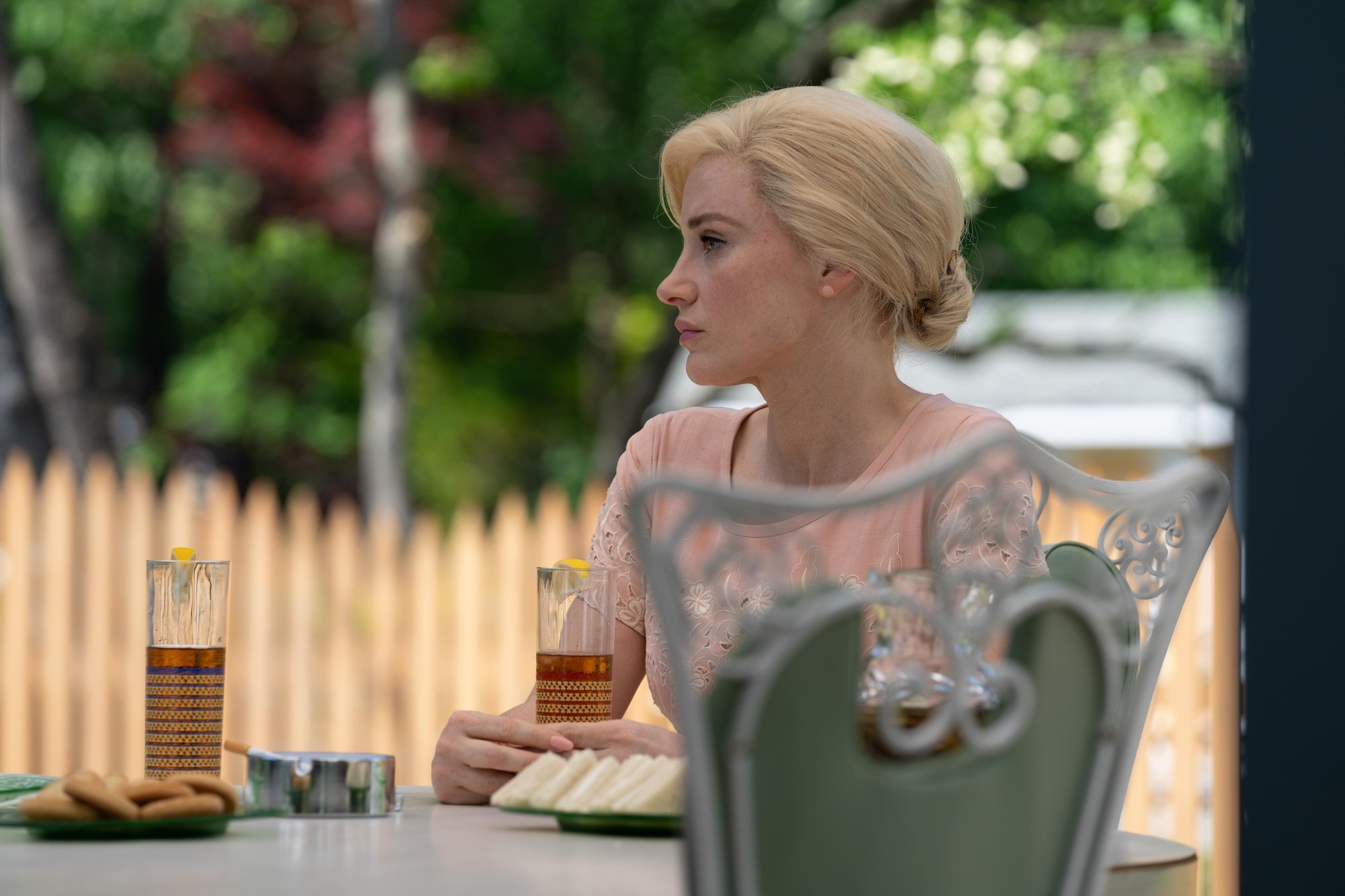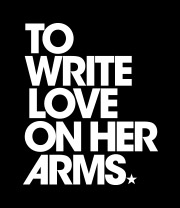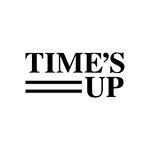 elcome to Jessica Chastain Network, your oldest and most complete resource dedicated to Jessica Chastain. You may better remember her as Molly Bloom in Molly's Game or Maya in Zero Dark Thiry. Academy Award winner for The Eyes of Tammy Faye, Jessica spans her career from big to small screen, seeing her not only in movies like The Help, The Debt, Miss Sloane, Woman Walks Ahead, The Zookeeper's Wife, The Good Nurse, she also played some iconic roles for series like Scenes from a Marriage and George & Tammy. Recently she registered a podcast series, The Space Within, and had a role in Memory and Mothers' Instinct. This site aims to keep you up-to-date with anything Mrs. Chastain with news, photos and videos. We are proudly PAPARAZZI FREE!
elcome to Jessica Chastain Network, your oldest and most complete resource dedicated to Jessica Chastain. You may better remember her as Molly Bloom in Molly's Game or Maya in Zero Dark Thiry. Academy Award winner for The Eyes of Tammy Faye, Jessica spans her career from big to small screen, seeing her not only in movies like The Help, The Debt, Miss Sloane, Woman Walks Ahead, The Zookeeper's Wife, The Good Nurse, she also played some iconic roles for series like Scenes from a Marriage and George & Tammy. Recently she registered a podcast series, The Space Within, and had a role in Memory and Mothers' Instinct. This site aims to keep you up-to-date with anything Mrs. Chastain with news, photos and videos. We are proudly PAPARAZZI FREE!

 elcome to Jessica Chastain Network, your oldest and most complete resource dedicated to Jessica Chastain. You may better remember her as Molly Bloom in Molly's Game or Maya in Zero Dark Thiry. Academy Award winner for The Eyes of Tammy Faye, Jessica spans her career from big to small screen, seeing her not only in movies like The Help, The Debt, Miss Sloane, Woman Walks Ahead, The Zookeeper's Wife, The Good Nurse, she also played some iconic roles for series like Scenes from a Marriage and George & Tammy. Recently she registered a podcast series, The Space Within, and had a role in Memory and Mothers' Instinct. This site aims to keep you up-to-date with anything Mrs. Chastain with news, photos and videos. We are proudly PAPARAZZI FREE!
elcome to Jessica Chastain Network, your oldest and most complete resource dedicated to Jessica Chastain. You may better remember her as Molly Bloom in Molly's Game or Maya in Zero Dark Thiry. Academy Award winner for The Eyes of Tammy Faye, Jessica spans her career from big to small screen, seeing her not only in movies like The Help, The Debt, Miss Sloane, Woman Walks Ahead, The Zookeeper's Wife, The Good Nurse, she also played some iconic roles for series like Scenes from a Marriage and George & Tammy. Recently she registered a podcast series, The Space Within, and had a role in Memory and Mothers' Instinct. This site aims to keep you up-to-date with anything Mrs. Chastain with news, photos and videos. We are proudly PAPARAZZI FREE!
Jessica Chastain’s November Glamour Cover Shoot
Logan Hill
October 7, 2014
Article taken from Glamour.
She’s in three huge movies this fall, and Oscar buzz abounds (again!). Here Jessica Chastain shares her confidence secrets – and the perks of being a “late bloomer.”
“I’m not quite used to this.” says Jessica Chastain, sitting in the lobby of New York City’s Mercer Hotel, acknowledging the double takes and stares around her. Its no wonder: Even thought it may seem that she arrived in Hollywood a total star, with 2011’s The Help and then Zero Dark Thirty, Chastain hasn’t actually been famous – as in turn-around-and-stare-at-her-famous – for very long.
Just six years, 18 films, two Oscar nominations, a Golden Globe, and $640 million in box office ticked sales ago, in fact, Chastain was a theater actress who’d never been in a film – at an age, 31, when many begin to think of giving up on Hollywood. Raised in Sacramento, California, by a chef mom and a firefighter stepdad, she says she went “through the hallways of school feeling lonely and not like I fit in” until she found friends – and her confidence – in drama class. “Like that show Glee,” she says, laughing as she spears a bite of fruit salad. The first in her family to go to college (Chastain grew up with three siblings, two of whom are teenagers and the other of whom serves in the military), she vaulted from Sacramento City College to New Yoek’s prestigious Juilliard School thanks to the unlikely fairy godfather who funded her scholarship, the late Robin Williams.
But Chastain never chased celebrity; it found her. More accurately, Al Pacino (“he’s super, super funny,” she says) did in 2006, when he cast her in Oscar Wilde’s racy play Salomé. Producers and directors noticed, and by 2011 The Help, a nearly $200 million box office sensation, earned her a Best Supporting Actress Oscar nomination and helped her sput a resurgence of women-driven films. Soon after, The Three of Life with Chastain alongside Brad Pitt, was the toast of the Cannes Film Festival – and in 2013 she won the Golden Globe for her portrayal of a relentless CIA agent chasing Osama bin Laden in Zero Dark Thirty.
But all that, it seems, was just a preamble to this fall’s blitz: Chastain has three movies coming out in three months. There’s the top-secret sci-fi film Interstellar, with Matthe McConaughey and Anne Hathaway, this month. Last month was The Disappearance of Eleanor Rigby: Them (it’s actually one film in three parts, and yes, the awards buzz is buzzing away), and in late December it’s going to be all about A Most Violent Year – cue more Oscar speculation – in which Chastain plays a New York mob wife who might actually be thoughter than her gangster husband, played by Oscar Isaac.
Now 37, reportedly dating the very poshly named fashion exec Gian Luca Passi de Preposulo, Chastain may be a “little shy” – but she grows bolder by the minute right in front of me at lour little table as she starts talking about women in Hollywood and “having it all.” When it comes to speaking her mind, she’s bot shy one bit.
Glamour: Your life has changed so much in the past six years –
Jessica Chastain: Three years! Two thousand and eleven, that’s when the movies [The Help, Take SHelter, Coriolanus, Texas Killing Fields, all starring Chastain] came out.
G: Please don’t take this wrong way, but that’s crazy. To break through with so many major films – and nab two Oscar nominations so fast – it was pratically unprecedented.
JC: I never expected it. I mean, I’ve asked: Has this ever happened? Also, I was in my thirties. So much change happened so quick…
G: Would it have been different if you’d broken through at age 19?
JC: I would have been a disaster. If I was 19 and I had the attention that I’m getting now, I would have just said stupid things. I would have partied more. All these expensive dinners and people giving me champagne? All these stupid things that we criticize 19-years-olds for doing when they’re famous, I would have done.
G: Really?
JC: That’s an age when we are supposed to make mistakes! The problem is, now they’re completely publicized [because of the internet]. I’m grateful that I had time to figure out who I was striving to be and how private I could be. I realized, actually, I don’t need to sell certain parts of myself to be an actor. I don’t need to talk about my most private secrets.
G: So that raises the question of your love life. I respect that you don’t want to talk about your relationship in public. Can you explain why?
JC: I think its important not to talk about it. In the future I will. If everything continues on a path, of course it’ll be part of the conversation. But until it gets there, I dont want to put any unexpected pressure on something that is so personal and so precious. Its too delicate right now.
G: You don’t post pictures of your boyfriend on Facebook, but you do post other photos.
JC: I’ve never posted a selfie. Never. I feel way too shy to be like, ‘Oh I really look good’ – and take a picture of myself… in a bikini… It’s not me. If I’m going to the beach, I’m under an umbrella.
G: You do use social media to talk about issues that matter to you. You recently shared a story about girls who post online videos of themselves asking, “Am I pretty?”
JC: It’s devastating. That broke my heart. Puberty is an impossible time for anyone, and these poor young girls are putting these videos of themselves online asking an anonymous world if they are going to have a happy life – basically that’s why they’re asking by saying, “Am I pretty?”
G: I’m a parent. I have a daughter who’s eight, and I just see this stuff coming –
JC: Oh, you have a daughter. That makes sense with these questions.
G: Well, I worry because I see the kind of snarky criticism and character assassination that used to happen only to celebrities is happening to everyone now on social media –
JC: Oh God, its the worst. Enough with the body shaming! What is going on in this world? I remember being eight years old. I was a late bloomer. I had very very short red hair. Very freckly. And thank God there wasn’t the Internet, because I was told everyday at school that I was ugly. And that no one wanted to be my friend. The most cruel things. And now these girls or boys are having to deal with that in their school and on a world platform. If I can do anything to help young girls and to be a cheerleader for people who sometimes have low self-esteem I want to do that.
G: So what did you do back then?
JC: My life changed when I joined drama. You know, like Glee: you don’t fit in, and then you find a group of people that understands you. You have to find your people.
G: You find your people, in part, thanks to the late Robin Williams. After he died, you said he ‘changed my life’ when he funded the scholarship that allowed you to study acting at Juilliard. And you were the first person in your family to go to college. How his death affect you?
JC: Well, I’m gonna do everything I can do for this organization called To Write Love on Her Arms that tries to do wha it can to prevent suicide. I found it after Robin Williams died. They go into high schools and talk about depression and bullying and suicide. The third-highest cause of death for teenagers is suicide. Its a really important organization. And how beautiful is the name of it?
G: That’s great, yeah. To shift gears a bit, you’ve gotten plenty of attention these past few years for your beauty and fashion choices.
JC: Especially for me, fashion is not just about, “My butt looks good in this dress”. To me, fashion is like going to a museum. I see designers as artists. It’s the same thing for me as painters. I love Sarah Burton’s McQueen, wild designers like Riccardo Tisci from Givenchy. Armani’s been doing some insane dresses [that are] like wearing a painting. Comme des Garçons’ are sculptural.
G: I’ve noticed you’ve criticized Hollywood often on behalf of your peers, like when you pointed out that Scarlett Johansson still doesn’t have a Marvel action movie, unlike har male co-stars.
JC: I’m really, really supportive of women in Hollywood. I love Meryl Streep. She’s such an incredible actress. But I feel like she’s the only one in her age group who gets those parts. I’d like to see Jessica Lange in a movie again, you know? Or Susan Sarandon. Why isn’t Viola Davis a lead in a film? She’s one of the greatest actresses alive. And where are the Asian actors and actresses? I’m not saying, “We don’t want movies about men.” I’m just saying, “Come on, all the men I know love women. So let’s also have some stories about these women. Let’s write something for them, guys – and let’s make room for women writers too.”
G: You already built a reputation for playing strong women. Do you feel a greater responsibility when you play those roles?
JC: There are a very limited number of parts. And there are some women that I’ve played and I didn’t give them too many flaws. Tree of Life. I loved that woman. Od The Help: Loved her, loved her, loved her, for all her openheartedness and compassion. But when I play a female lead, like the role in Zero Dark Thirty, even if she’s strong, I try to give her as many flaws as I can. I think to play a female hero without faults is actually doing a disservice to women. I think its more interesting to see women on-screen with flaws. Then its not this unreasonable expectation that society then would put on you: “Well, a strong woman can’t be like this…”
G: Right. We’d never expect a strong guy to be perfect in every way like that, right?
JC: I don’t think its possible for anyone, male or female, to have it all. I’m just gonna say it: We can have as much as we’re capable of doing, but no one is capable of doing everything. Like, I hope someday to have a family and a career. But I have to also be kind to myself.
G: A few of my friends will drive themselves to the brink before they ask for help –
JC: I used to be like that. Oh my God, I was so annoying. I wondered, Why am I so unhappy? And it was because I thought, I can do everything better than anyone else, so I’m just going to go ahead and do it all. That crazy thing. So stupid. If I didn’t have incredible people around me, I wouldn’t be here right now.
G: You’re with Juilliard classmate Jess Weixler in The Disappearance of Eleanor Rigby – and then with another classmate, Oscar Isaac, in A Most Violent Year. It’s amazing, you’re all still so close.
JC: For four years we spend all day together. We were right at that stage of just becoming adults and deciding what kind of person we were going to be. Eyes wide as saucers. These are 20 people who have seen me at my absolute worst. And I’ve seen every single one of them have some kind of emotional breakdown. It’s like family. Like they’re my brother or my sister.
G: You’ve said you hope your acting allows women to imagine wider roles for themselves – to expand their imagination.
JC: To me, it feels like acting is an education in empathy. My favorite book is To Kill a Mockingbird, and Atticus Finch says soemthing like, “You don’t judge a person until you walk a mile in their skin.” When I’m acting I get to live with someone else’s dreams and their sorrows and their desires and their heart. Their loves and pains. I hope it’s teaching me. to be less judgmental and more compassionate. It’s like going to school to learn about other people. I’m profoundly grateful. We’re all connected.




